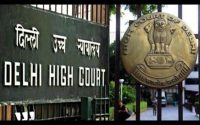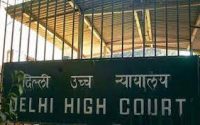$100 Website Offer
Get your personal website + domain for just $100.
Limited Time Offer!
Claim Your Website NowProcessing of trademark applications not satisfactory, Delhi HC seeks Registrar’s affidavit on streamlining process.
Source – barandbench.com
Remaking that the present procedure of processing trademark applications is not satisfactory, the Delhi High Court has directed Registrar of Trade Marks to state on affidavit the following aspects:
- The current procedure for processing of trade mark applications, right from the filing of the application to the processing of licences and assignments, renewal notices, etc.
- If these steps are dealt with by one officer or by different departments, even if they relate to the same application.
- The manner and procedure for uploading of documents which is currently being followed at each and every stage by the Trade Marks Registry.
- Whether it is considered efficient to allocate a particular trade mark application to a specific officer who would then process the subsequent forms filed in respect of the same to enable efficient processing of the same.
- Whether post-registration formalities should be dealt with by a separate department and if so whether post-registration formalities of specific registered trade marks ought to be handled by a single officer.
After perusing the same, the Court may pass appropriate directions for streamlining of the processing of trade mark applications.
The Order was passed by a Single Judge Bench of Justice Prathiba M Singh in a petition by Asianet Star Communications Pvt. Ltd. The Petitioner had moved the Court in view of the backdated uploading of O-3 notice in respect of its registered trademark on the trade mark Registry’s website.
The Court had then directed The Registrar of Trade Marks to explain how the O-3 notice was uploaded on its websites in a backdated manner.
Pursuant to an order passed by the Court, the Senior Examiner of Trade Marks – Shikha Dewan and an officer from the Legal Section, Hemant Kumar were also present in Court and filed an affidavit.
After taking the affidavit on record, the Court remarked that there had been several lapses in the functioning of the Trade Marks Registry with respect to the petitioner’s trademark.
It noted that the petitioner’s application for change of address was not processed for ten years due to which the O-3 Notice was delivered to the wrong address which consequently resulted in the entire episode before Court.
The second lapse, the Court noted, was that the O-3 notice which was dispatched to the incorrect address was not uploaded on the website of the Trade Marks Registry contemporaneously.
In response to the lapses, the Senior Examiner of Trade Marks submitted that the renewal requests ie. O-3 notices are issued by a Centralized Renewal Department and Form TM-34 i.e. application for change of address is processed by a separate Post Registration section
Emphasising on the need for the processing of trade mark applications till registration and even thereafter, the Court observed,
“Clearly, there is something amiss in the functioning and procedural administration of the trade mark registration files. If separate departments deal with separate forms, then obviously such lapses are bound to occur and such procedure would result in enormous inefficiency in the processing of trade mark applications.“
The Court, therefore, opined that in order to obviate the recurrence of such miscommunication and confusion in the future, which has “clearly become endemic in the Trade Mark Registry“, there was a need to establish a proper procedure for the processing of trade mark applications and registrations.
It thus directed the Registrar of Trade Marks to place on record an affidavit of Hoshiar Singh, the Head of the Trade Marks Registry Office, Delhi, detailing the aspects on steps that form part of pre-registration and pos- registration of trademarks, manner and procedure for uploading of documents, allocation of specific trade mark applications to a single officer etc.
To further ascertain the feasibility of any proposed mechanism, the Court has also directed that a technical person from the National Informatics Centre and a senior officer from the Trade Mark Registry, Delhi to remain present in Court on the next date of hearing.
As far the petitioner’s trade mark was concerned, the Registry informed that it was willing to process the renewal of the trade mark. The Court thus directed that the renewal process be undertaken and the renewal certificate be issued to the Petitioner.
The matter would be heard next on December 5.
The petitioner was represented by Advocates Saikrishna Rajagopal, Nitin Sharma, Sumant Narang, Abhiti Vacher & Vivek Ayyagari.
The Registry was represented by Central Government Standing Counsel Guarang Kanth.



